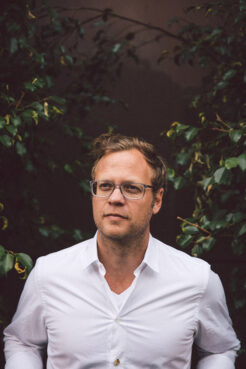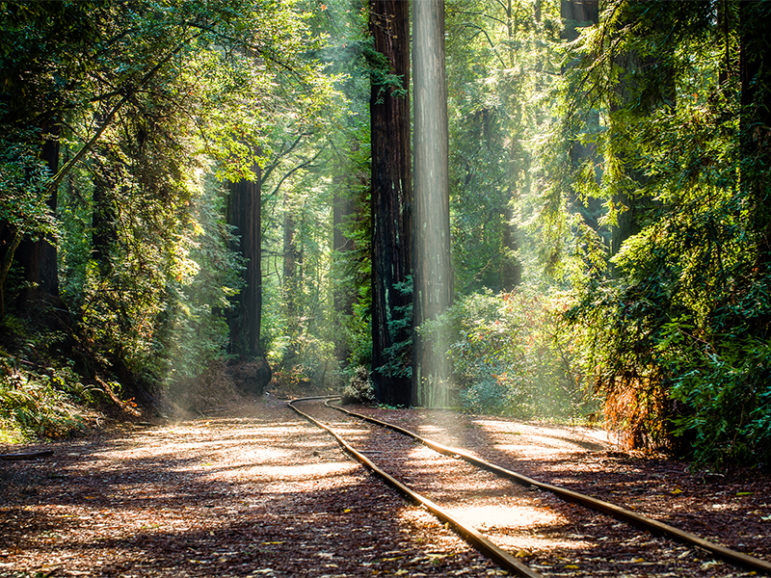(RNS) — The coronavirus has brought death back into the national conversation.
As of early October, an estimated 300,000 more people have died in the United States in 2020 than in a usual year. At least two-thirds of those deaths have been attributed to the virus, according to a report from the federal Centers for Disease Control and Prevention. And with a flood of stories about people tethered to ventilators, unable to breathe on their own, death, in all its capriciousness, has reemerged as an urgent topic worthy of public discussion.
But contemplating mortality — especially one’s own — can be an uncomfortable prospect. Michael Hebb wants to change that, or at least, to offer people guidance for thinking about and talking about death.
Eight years ago, Hebb founded Death Over Dinner, an organization created to encourage people to discuss the dreaded topic with friends and family over a meal.
Hebb, a former restaurateur who lives in Seattle, is part of an emerging movement sometimes called death wellness or death positivity that aims to help people confront their anxiety about death, learn how to plan for it, support loved ones who may be nearing the end of life and provide grief counseling.
The movement consists of palliative care doctors, death doulas (or death midwives), hospital chaplains and others interested in encouraging people to confront their mortality and better plan for the life that remains.
Working with RoundGlass, a global well-being company founded by entrepreneur and philanthropist Gurpreet (Sunny) Singh, Hebb recently launched a new online portal called the End of Life Collective, offering caregivers and care seekers a way to customize an end-of-life plan.
Religion News Service talked to Hebb about Death Over Dinner and his new End of Life Collective, which he calls EOL for short. The interview was edited for length and clarity.
Death Over Dinner is 8 years old. How did it come about, and how has it fared?
For the last 20 years I’ve been gathering leaders, politicians, Nobel Prize winners, heads of state — you name it — to discuss some of the hardest issues we face. Working with the World Economic Forum, the Clinton Foundation, the Obama Foundation, TED, et cetera, it became clear to me the conversations we tend to avoid are the most important ones for us to be having. That’s clear in the current state of our politics. I ultimately realized there was a need to expand these conversations from leaders to everyone.

Michael Hebb. Courtesy photo
We built Death Over Dinner not knowing how successful it would be. The idea was simply: Let’s take everything we’ve learned over the past 10, 15 years about difficult conversations and turn it into a board game and distribute it widely and see how many people are willing to come together to talk about facing our mortality and our end-of-life wishes.
It pretty quickly became an international movement. We’ve had over 1 million people that have sat down at a table and shared the Death Over Dinner experience. We went on to create a health care edition of Death Over Dinner in partnership with the Cleveland Clinic. Now doctors and nurses all over the world are having these experiences.
There’s a Jewish edition, an Indian edition, a Brazilian edition and an Australian edition. It’s not denominational. It celebrates every faith. It’s an invitation for people to have this important conversation and have it in a beautiful and meaningful way — not in the jarring and challenging way we have it now with our doctors or attorneys or financial advisers.
How does Death Over Dinner work?
The website is very simple to use and takes people through a series of questions: Who’s coming to dinner, why you want to have a conversation, what’s your intention? It might be philosophical or spiritual reasons. It may be you or someone you love has a terminal diagnosis, or you may be grieving. Depending on which intention you chose, the site automatically creates a script to support that intention. It creates invitations for your potential guests, homework to read, watch and listen before they come together and then follow-up steps. It gives you everything like a board game.
During COVID, these dinners have been happening virtually. In that case, people don’t come with food but spend some hours together over Zoom.
What led to the End of Life Collective?
It was very clear for us there was no good place to send people to create an end-of-life plan and connect with experts and providers. It got much more serious three years ago when I joined RoundGlass as a partner. Already it’s the most extensive resource on end-of-life content, end-of-life providers, an end-of-life-focused marketplace. If somebody has questions about grief, memory care, hospice, planning a funeral, green burial, they can be addressed immediately on the conversation board by the leading experts in the field.
What faith groups have expressed an interest in talking about death?
It’s incredibly diverse. We hosted dinners with a variety of different faiths: leaders of the Mormon church, the Episcopal Church, Baptist churches, Buddhists. There is not a specific age range. We’re seeing people in their 60s, 70s and 80s and also people in their 20s and 30s.
Do you feel taboos in talking about death have lessened?
The reality is when people hear about Death Over Dinner they tend to lean into it. People talk about death all the time. They just aren’t given a great invitation to talk about their own relationship to it. I know people are afraid of death and the unknown. We’re never going to change that. But talking about the people we’ve lost, what we want to accomplish while we’re still here, those are topics people are interested in. We just don’t ask them to have those conversations culturally. We ask that you have those conversations with an oncologist or a life insurance agent or a funeral director. That’s not a desirable conversation, understandably, because of the context. Those of us doing the work don’t find that people are repulsed by the conversation at all.
Do you think religious groups have done a poor job of talking about it?
Religion is inherently a subject of end-of-life. I wouldn’t pass any judgment on any particular denomination or religion. There’s a wide variety of responses. I think there’s an untapped opportunity to continue to become leaders in this conversation and in the preparation of their communities. It’s one thing to have a conversation; it’s another thing to organize your community, religious and otherwise, to be prepared.
With the coronavirus there’s been an incredible wake-up call to our mortality, fragility and resilience. We are clearly mortal. Our life can end at any point. Being prepared is something that can create a great deal of peace and a sense of calm in a time when we have very little control. Hopefully as people begin to feel like we are regaining normalcy, creating an end-of-life plan becomes as commonplace as having an iPhone. That’s my hope, is that this becomes a household phenomenon. It’s essential.





